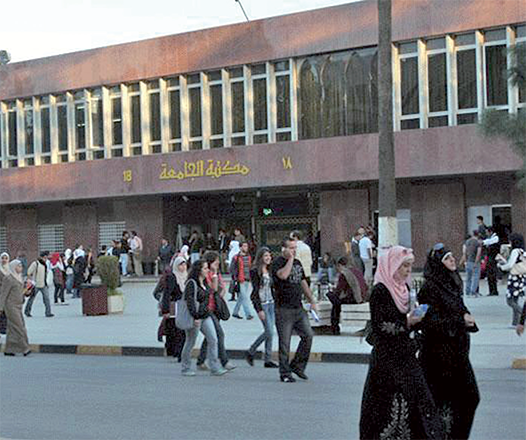You are here
Graduates urge education ministry to increase medical school admissions
By Rayya Al Muheisen - Aug 31,2023 - Last updated at Aug 31,2023
AMMAN — Despite several appeals for Jordanian medical schools to increase their admissions, the Ministry of Higher Education and Scientific Research remains steadfast in upholding its current admission policy, according to officials.
A group of high school students protested this week in front of the Ministry of Higher Education and Scientific Research, rejecting the decision to significantly reduce the available medical school seats, particularly within the field of medicine, dentistry and pharmaceutical majors, arguing that medical school admissions have been reduced by roughly 70 per cent compared with previous years.
They are calling for this decision to be overruled, emphasising the potential damage it could cause and the importance of upholding principles of fairness and equal opportunities.
Students argue that the reduction of university seats is not only unjust but also impinges on the rights of students. Students are calling on the Ministry of Higher Education and Scientific Research to allow them to select majors based on their academic performance.
Aisha Ahmad, who has been retaking her Tawjihi exams for the past two years to meet the required results for medical school, expressed her frustration on social media.
“It’s disheartening to witness such a decision being upheld. I’ve put in immense effort to improve my Tawjihi scores and achieve my dream of becoming a doctor,” Ahmad posted.
Omar Hmaidi, another student who faced similar challenges expressed his frustration due to the “unfair” decision.
“I understand the need for quality control, but the current decision seems to disproportionately affect students like me who have been working hard to meet the requirements,” Hmaidi added.
Hmaidi noted that students who score less than 99 per cent out of 100 will definitely not be accepted in Jordanian medical schools. “Students will have to travel to Turkey, Europe or any other country to pursue a medical degree,” said Hmaidi.
Muhannad Al Khatib, spokesperson for the Ministry of Higher Education and Scientific Research told The Jordan Times that the ministry insists on reducing the medical school admission rate.
“The admission numbers for medical specialties will be closely monitored to ensure they align with the capacity of each specialisation,” Khatib stressed.
This measure aims to prevent a surplus of students beyond the established capacity, in accordance with directives from the Higher Education Council, said Khatib.
Khatib clarified that the number of medical students currently enrolled in the Kingdom stands at approximately 22,000, with about 5,000 dental students spread across various universities.
Hazem Al Qaralleh, the head of the media committee at the Jordan Doctors Association, said that around 1,500 doctors are currently unable to secure job opportunities within Jordan, warning of alarming unemployment rates that could overwhelm any government’s ability to manage, as reported by Al Mamlaka TV.
“In five years, we might encounter a scenario where the number of registered doctors in the Doctors’ Syndicate surpasses the number of actively practising professionals,” Qaralleh added.
As annual graduations yield an increasing number of 2,500 to 3,000 doctors, Qaralleh voiced his concerns about potential oversupply in doctors.
He emphasised that the local demand ranges between 1,000 and 1,100 doctors, with 500 allocated seats within the Ministry of Health and 500 to 600 doctors distributed across other sectors.
“If the status quo persists, we are likely to confront alarming levels of unemployment within the medical field — a challenge no government can easily address,” Qaralleh added.
Related Articles
AMMAN — The Ministry of Higher Education and Scientific Research is gradually reducing the number of admissions to medicine and dentistry pr
AMMAN — Results of the Undergraduate Unified Admissions will be issued at the beginning of October, according to the Ministry of Higher Educ
AMMAN — The Ministry of Higher Education and Scientific Research on Saturday announced that the expected total number of university students



















